
The 3 new reasons why the scales won’t move according to science

On your diet. Off your diet. Weight goes down. Weight goes back up. No matter what you do you can’t seem to lose weight. How can you find the consistency you need to get lasting results? What is stopping you from losing weight? We have the answer.
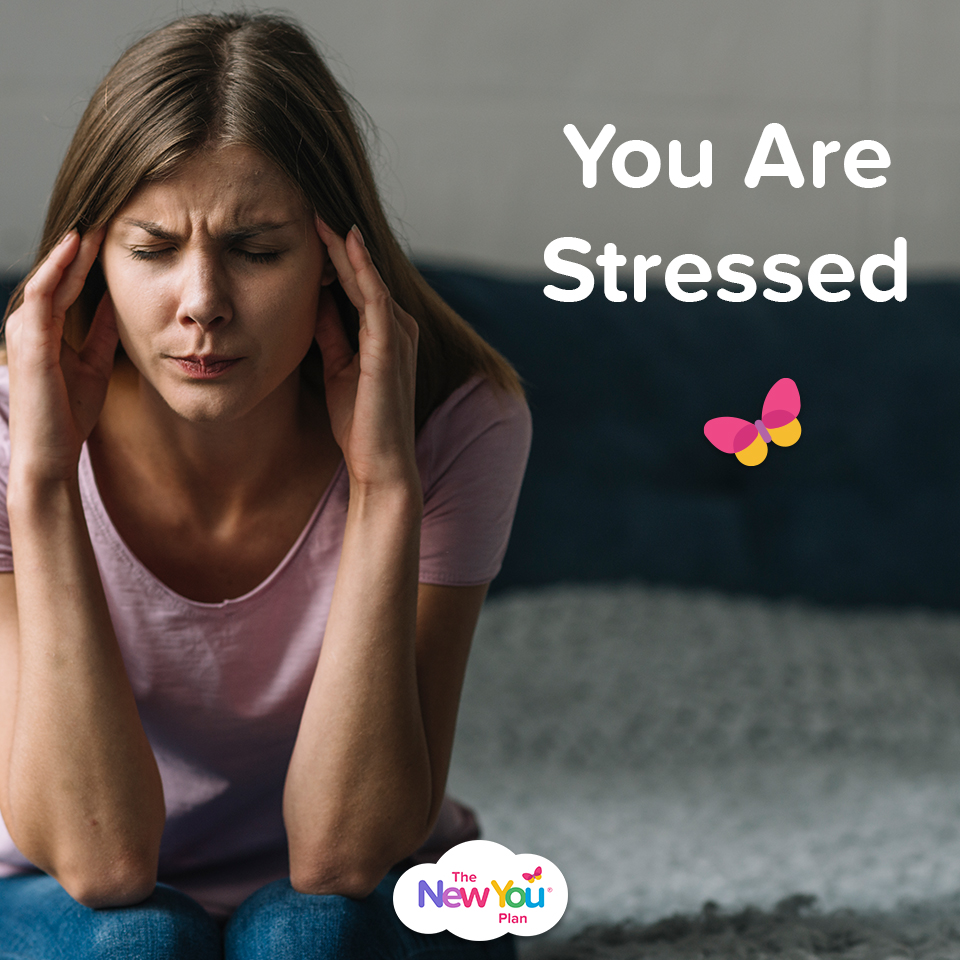
1. You are stressed
We get it. Your ‘to do’ list is 6 pages long, you have a work assignment due tomorrow, bills to pay, a never ending laundry pile and apparently 23 minutes before school starts, to cobble together an outfit for World Book Day. You are STRESSED! Research suggest that exposure to a moderate amount of stress that you can master, can actually make you stronger and better able to manage stress. Whatever doesn’t kill us makes us stronger and all that.
However, when we are under stress we are constantly churning out the stress hormone adrenalin and that prepares our body to fight or flee from an attack. Here’s the thing…. the stress doesn’t even have to be real for our body to react this way. We just need to believe it is real and BOOM! Adrenalin starts to create havoc. That rapid heart beat, sweaty armpits and feeling like someone has built a sandcastle in your mouth? That’s adrenaline.
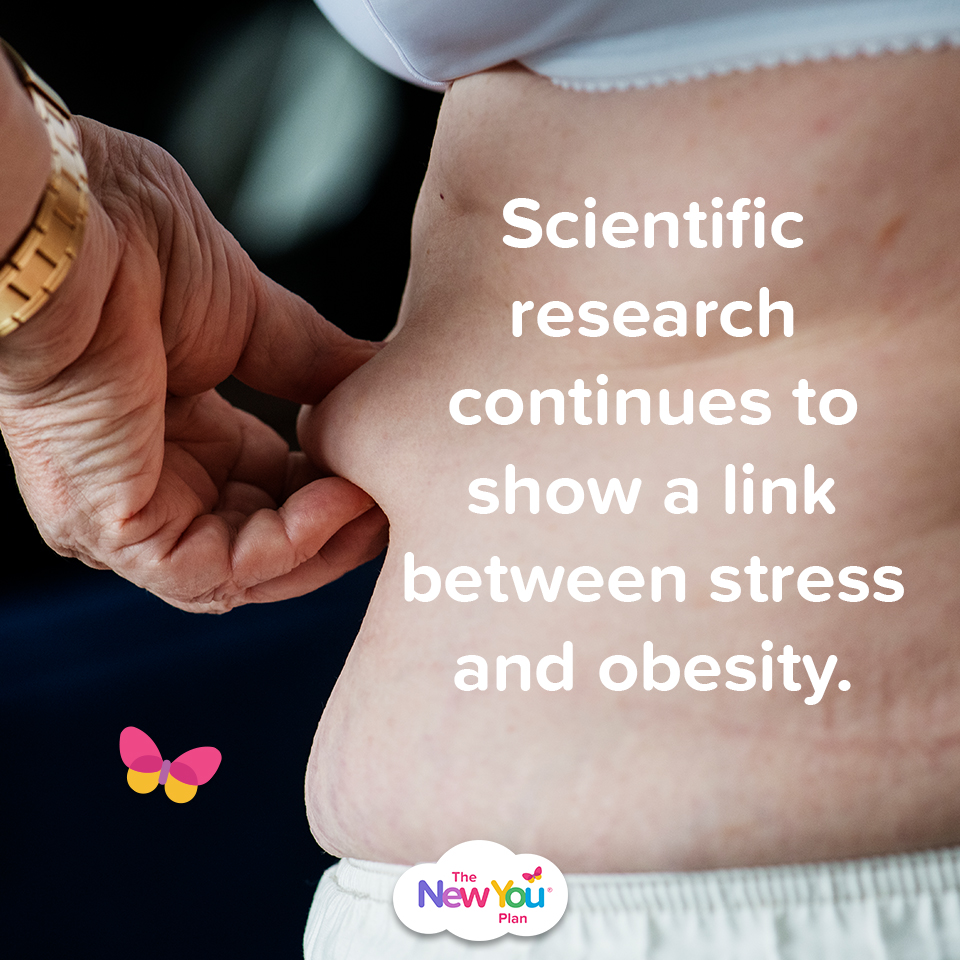
Scientific research continues to show a link between stress and obesity. So what’s going on?
When stress is prolonged, the body starts to make another stress hormone called cortisol, which causes blood sugar levels to rise, ready to fight or flee from an attack. While essential for survival, a problem arises when cortisol is released in large, continuous doses, as it can lead the body to store fat, particularly around the waist.
Not only are you dealing with The Kray twins of the hormone world, thanks to stress you also have to factor in emotional eating. If you over-eat when you’re feeling stressed, there’s a reason why comfort food is so appealing. A study from the University of Texas found that levels of the hunger hormone ghrelin rise during periods of stress, increasing a desire for fattening foods.
What’s the solution?
In an ideal world we could hand over all of our stressors to someone else to deal with and kick back with a cup of tea and Derry Girls on a loop. Likelihood? Slim to none. There is one thing you can do however that actually stops stress hormones in their tracks. Simply breathe.
When you are stressed your brain sends signals to your heart and lungs encouraging a faster heart beat and breathing rates. The cool thing is this is a two-way street. The heart and lungs can send a message back to the brain to say ‘everything is ok’ simply by breathing out for longer than you breathe in.

So inhale for 4 counts and exhale for 7 counts. When you do this for a few minutes the brain gets the message ‘nothing to worry about here’ and stops flooding your body with stress hormones. Next time you feel stressed, try a breathing exercise for a few minutes. It works.
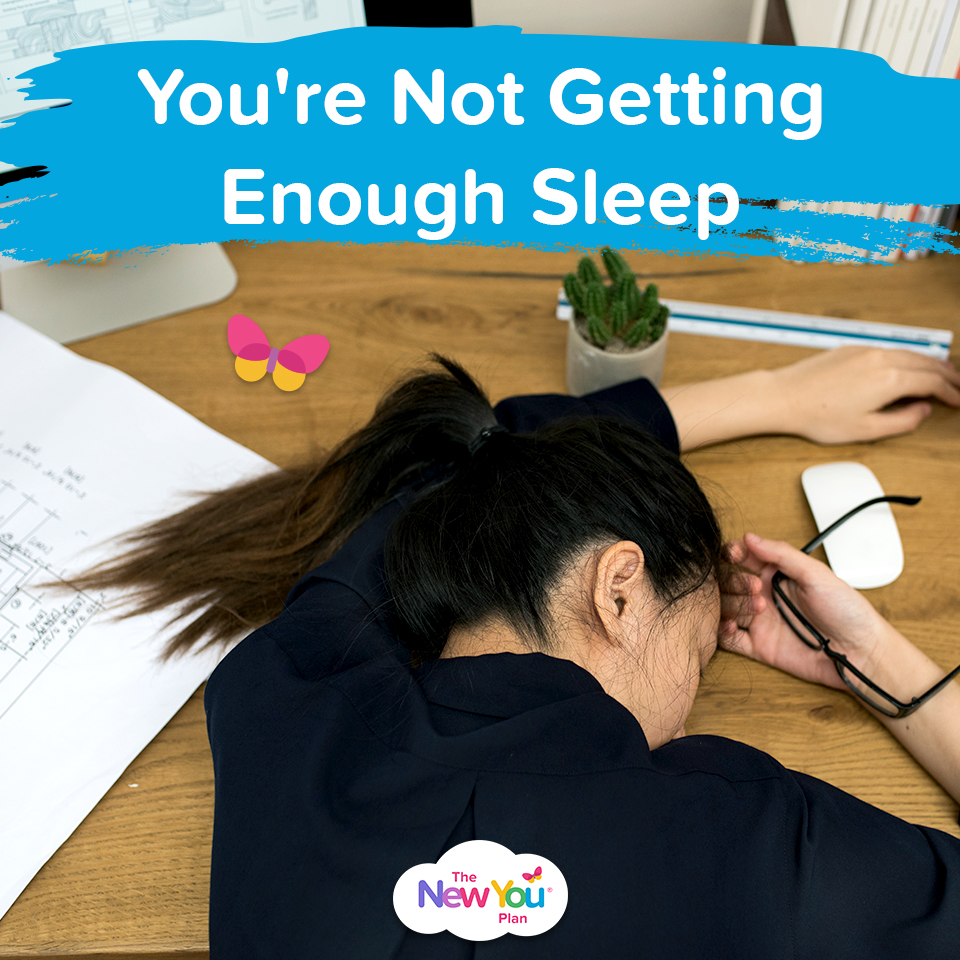
2. You’re not getting enough sleep
Sleep. We all do it, but many of us don’t do it well. A good night’s rest is essential to a healthy existence, protecting you physically and mentally as well as boosting your quality of life. Unfortunately, many of us struggle to fall asleep, have bad dreams, can’t wake up in the morning and then feel constantly tired!
One poor night’s sleep isn’t going to make you pile on the pounds, but if you regularly get less than six or seven hours a night, it could lead to weight gain.
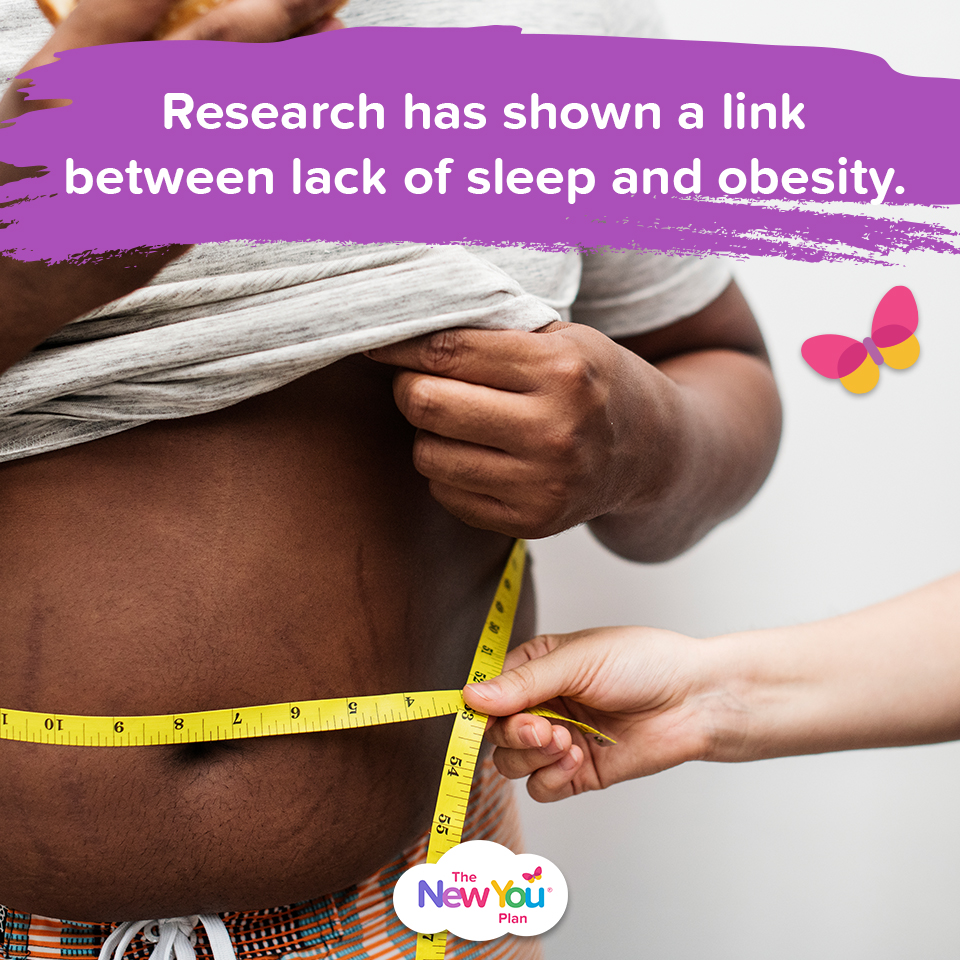
Research has shown a link between lack of sleep and obesity. In addition to short sleep duration, evidence suggests that sleep disturbance, such as obstructive sleep apnoea and poor sleep quality, may also increase the risk of obesity.
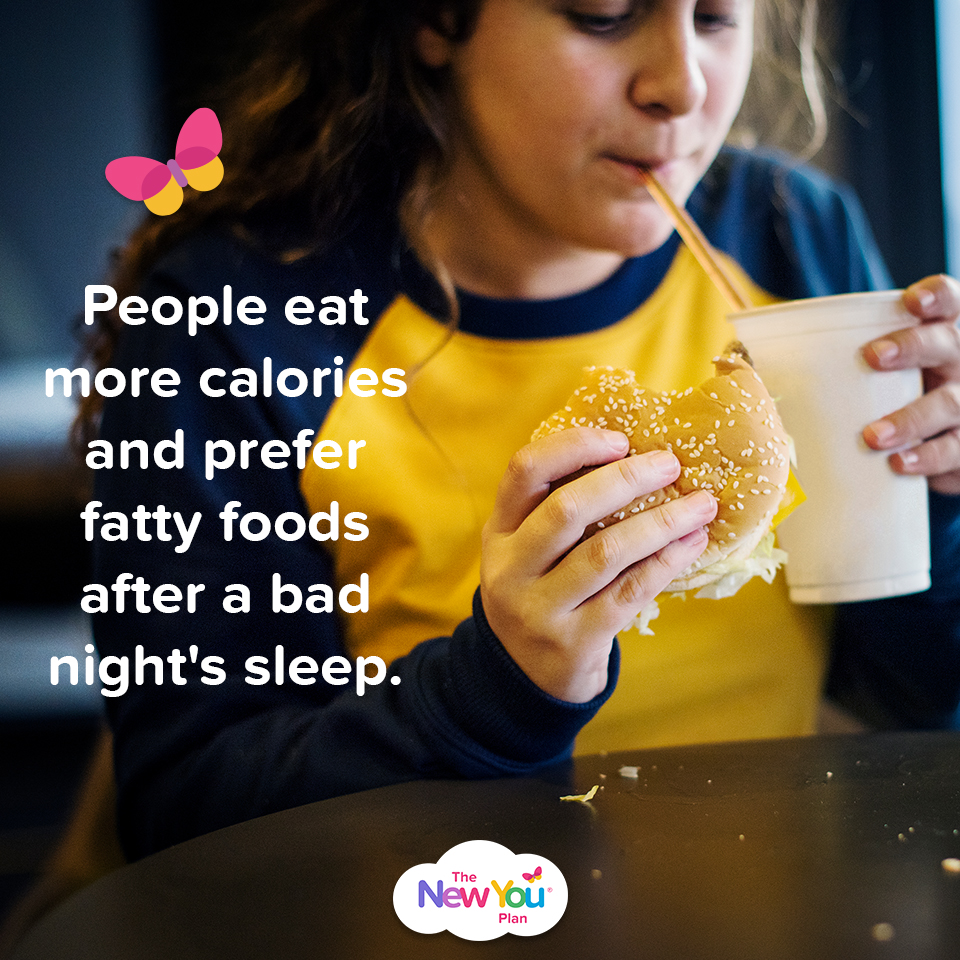
Recent research has found that a sleep-starved body produces less leptin, a hormone that suppresses appetite, while increasing the hunger hormone ghrelin. As a consequence, people eat more calories and prefer fatty foods after a bad night’s sleep.
Tiredness also dulls activity in the brain’s frontal lobe, the CEO of the brain which manages decision-making and impulse control, while stimulating the brain’s reward centres, making it look for something pleasant – like another slice of cake. Not only does a sleepy brain crave fattening food, it also lacks the control to say no – it’s no wonder sleep deprivation leads to overeating and weight gain.
What’s the solution?
If you’re having trouble sleeping, one of the first things to consider is your bedroom. In order to get a restful night’s sleep you need the right setting, which means a clean, peaceful and welcoming room. Many of us are unknowingly sleeping in a bedroom that’s simply not fit for purpose, and that environment could be the key cause of a restless night.
Fortunately, it’s relatively easy to transform your bedroom into a space that encourages a peaceful night’s sleep. Here are our top tips:
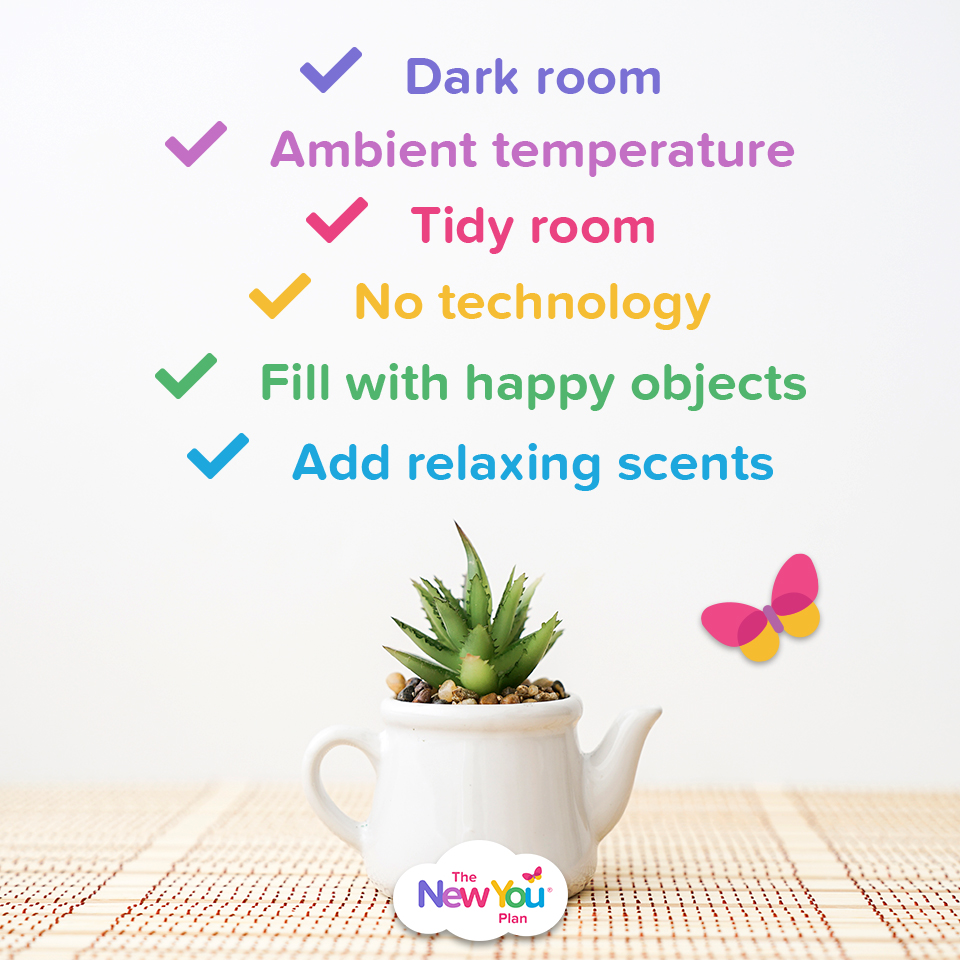
- When it’s time for bed, make your room completely dark. This can be achieved with a blackout blind or curtains, an additional window dressing, or even an eye mask.
- Maintain an ambient temperature in your room. If you’re too hot or too cold, you won’t sleep soundly. We recommend a cool temperature of around 16-18° C
- A tidy room makes for a tidy mind… and a restful night’s sleep! De-clutter your bedroom and create a space that’s clean, neat and simple. Even just relocating the laundry basket, stacking up some books or blitzing your bedside table can make a real difference.
- Say no to technology in the bedroom! That means avoiding televisions and computers. Having access to these will urge you to switch on when you can’t drift off, which in turn can lead to even more disturbed sleep.
- LED displays are particularly troublesome when it comes to getting a good night’s sleep. When it’s time to snooze, switch off your mobile phone, tablet, and any alarm clocks with a digital display.
- Add special touches to the space, which will help you feel more connected and peaceful. Family photographs, plants, flowers and ornaments will help to create a room that’s pleasant and relaxing.
- Certain smells can affect your mood, helping you to feel more calm and relaxed. Lavender and germanium are naturally calming, so invest in some essential oils to help you drift off.
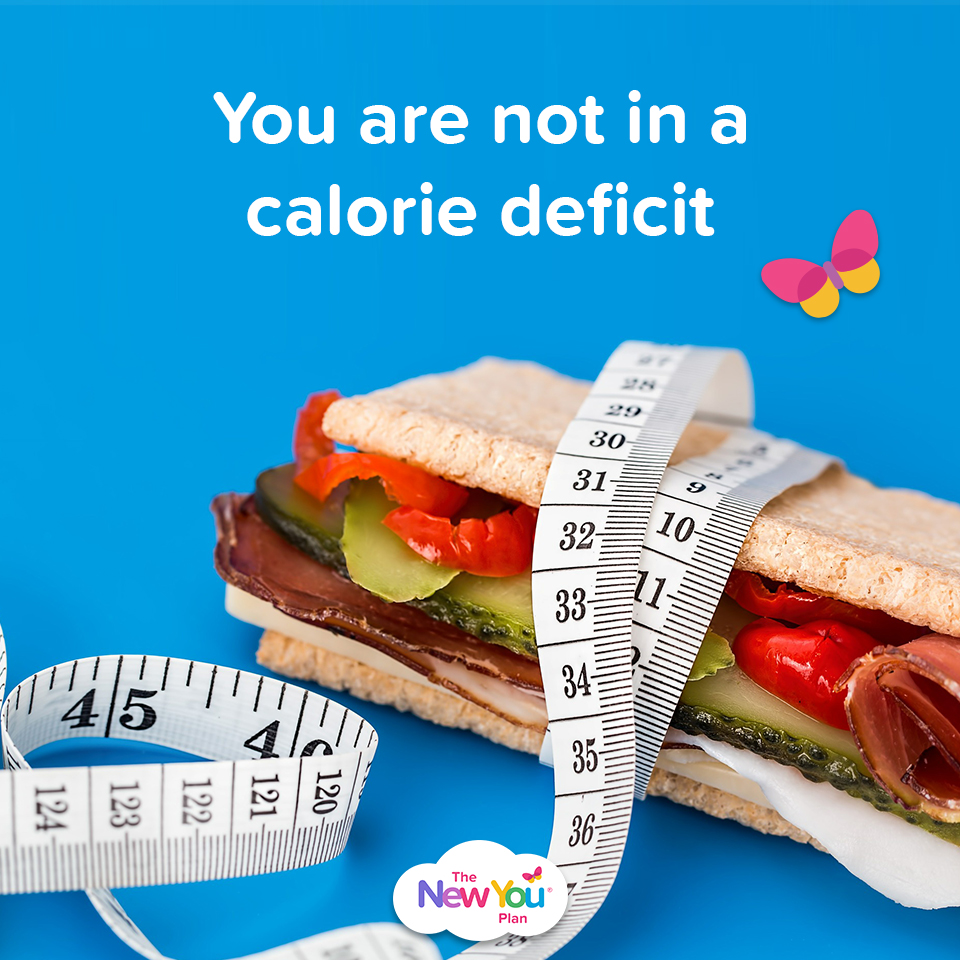
3. You are not in a calorie deficit
This is the Holy Grail of weight loss. Seriously an Indiana Jones moment right here.
What is a calorie deficit?
Your body needs a certain amount of calories each day to carry out basic functions. This is also known as your Total Daily Energy Expenditure or TDEE. This number varies according to age, whether you are male or female, your activity levels etc.
For example, your calories needed each day to carry out basic bodily functions might be 1600 calories. If you only consume 1200 calories that day you are in a calorie deficit. The body then must use fat stores to make up the difference. It seems easy enough. So why are you not losing weight?
We have already seen that excess stress and sleep can cause us to overeat or have a calorie surplus but one of the most common reasons for failing to be in a calorie deficit and not be losing weight is that we are all a bit rubbish at counting calories and remembering exactly what we have eaten.
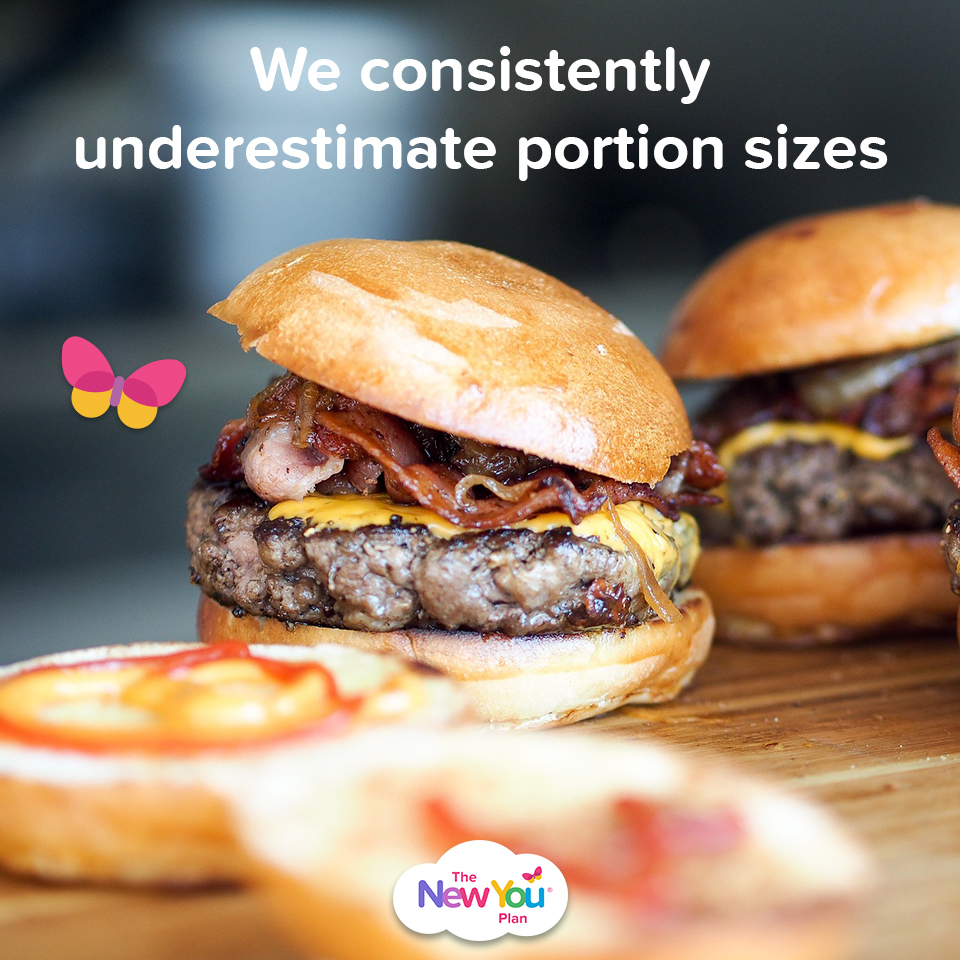
We consistently underestimate portion sizes. We forget about a cookie with a cuppa in the office or a few chips off someone else’s plate. And all of this literally adds up to maintenance calories or a calorie surplus. This means that the body does not need to use fat stores to carry out basic functions as thanks to those chips or that cookie you have consumed more than enough calories. The result? You don’t lose weight or you actually bloody gain it!
What’s the solution?
You can carry around a set of weighing scales and accurately weigh and record each morsel of food and drink that passes your lips. You will also need a list of all ingredients in any prepared foods, how they were cooked and to find out just exactly how much cocoa powder that chocolate truffle was rolled in before you eat it. Ughhh who has the time?
Alternatively, you could let us do it all for you. The New You Plan is a meal replacement diet that lets you choose your calorie deficit. That means no shopping for groceries, no weighing of ingredients, no guessing of portion sizes. It’s all done for you enabling you to create a calorie deficit quickly and easily.
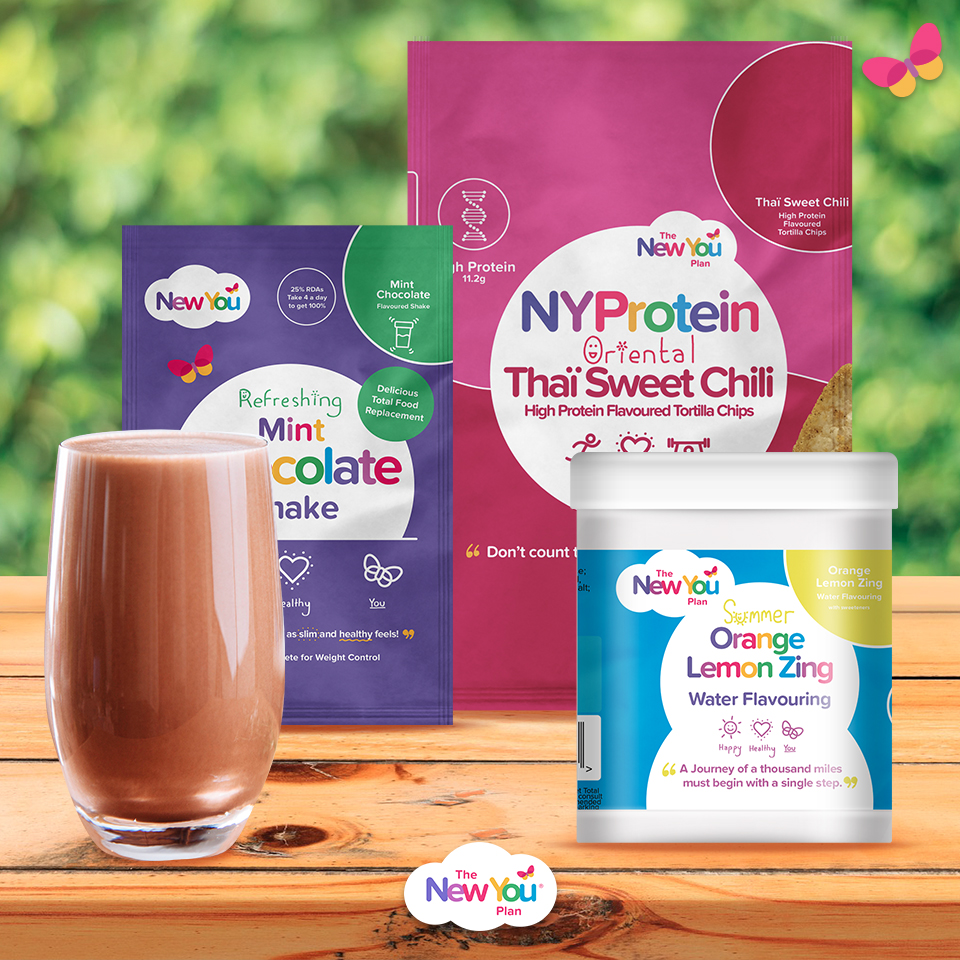
The majority of our customers choose Total Food Replacement which is our quickest route to weight loss. When the New You Plan diet meal replacements are taken on their own as part of a total food abstinence plan they create a natural fat burning process in your body called ketosis as well as a calorie deficit.
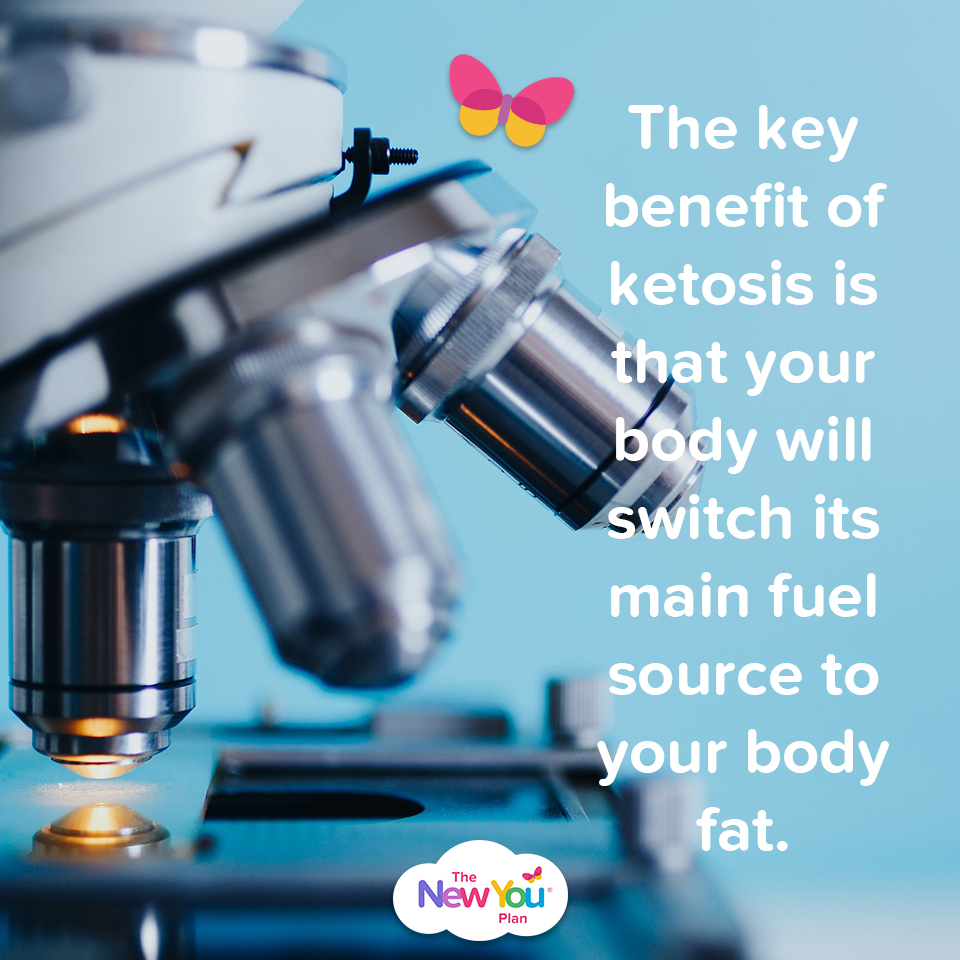
The key benefit of ketosis is that your body will switch its main fuel source to your body fat. Normally your body uses glucose sugar for energy, but when your body is in ketosis, it will use fat as the major source of energy.
We have developed a range of over 40 diet meal replacements which are nutritionally complete, satisfying and delicious. You eat 4 times a day choosing from soups, shakes, bars and meals. Each meal has 23 vitamins and minerals so when you consume 4 meal packs per day you will get 100% of your daily recommended vitamins and minerals.
Many of our customers also report ‘feeling happier’ with ‘less stress’ and ‘sleeping better’ when they are on the New You Plan.
If you have tried to lose weight and it hasn’t worked up to now, click here to see how The New You Plan might be the answer you are looking for.






